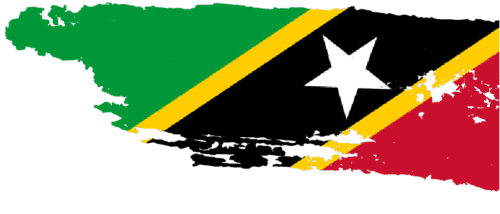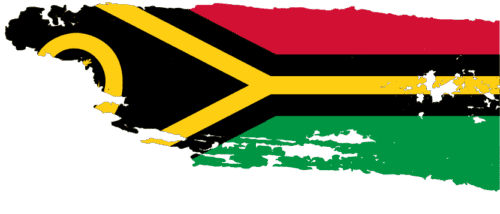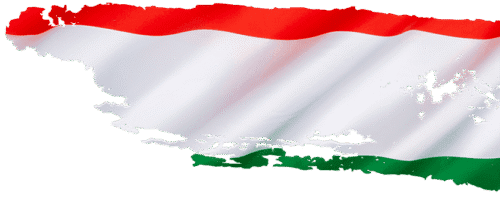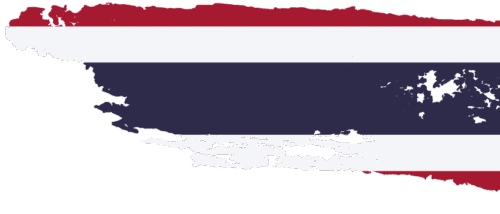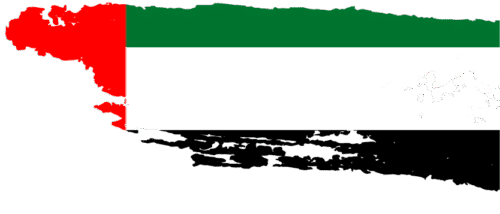As global connectivity increases, many people consider the benefits and complications of dual citizenship. Dual citizenship, often known as dual nationality, is an individual’s legal position as a citizen of two nations. This approach has become more prevalent due to several variables like globalisation, changed immigration regulations, and the quest for new opportunities.
Dual citizenship is a multi-dimensional phenomenon with far-reaching outcomes. From different motives for gaining it, accessibility to various countries and remarkable offerings make dual citizenship a necessity and a vast opportunity for the overall growth of life.
Here, we will explore six interesting facts about dual citizenship and its benefits that will enable you to analyze the possibilities you can enjoy by obtaining it and how it can play a role in your overall growth.
6 Facts about Having Dual Citizenship

1. Rising Dual Citizenship
Dual citizenship has seen a remarkable rise in popularity globally and is getting significant attention from governments and citizens from across the globe. Let’s look at some reasons for this considerable surge in dual citizenship.
-
High Popularity Worldwide
Several significant causes have contributed to the current rise of dual citizenship. The desire for greater travel flexibility is one of the critical aspects. Accessing dual citizenship is a significant benefit in an era where international borders are more porous than ever.
It enables people to travel the world with unprecedented ease, avoiding visa restrictions and easing the process of immersing themselves in new cultures and possibilities. Dual citizenship, whether for business or leisure, offers a level of freedom that was once inconceivable.
-
Economic Incentives and Policies
The pursuit of economic success contributes considerably to dual citizenship. In return for citizenship, several countries offer appealing incentives to international investors and qualified workers.
These programs, often known as Citizenship-by-Investment (CBI) or economic citizenship plans, have grown in popularity. They revitalise a country’s economy and offer individuals one of the most powerful passports that allow them to enter global economics and financial sectors.
-
Role of Globalisation
Globalisation is an essential factor in the present increase of dual citizenship. People are becoming more exposed to diverse cultures, languages, and possibilities as international trade, identification, and a desire to participate with the world on various fronts.
The historical setting, the modern surge and the role of globalisation all contribute to the incredible rise of dual citizenship.
Let’s uncover the potential possibilities you can enjoy with dual citizenship.
2. Benefits of Dual Citizenship

Dual citizenship is more than just a legal status. It opens the door to a world of opportunities and connections that can radically change our lives.
-
Expands Horizons
With dual citizenship, you can live, study, and travel in both countries of nationality without visas or work permits. This allows a world of possibilities, whether you wish to travel to new cultures, enhance your education or simply live where your heart desires.
However, dual citizenship can boost your personal as well as professional growth. Immersion in various cultures broadens your perspectives, promotes adaptability, and enhances problem-solving skills.
These traits can significantly be advantages in an increasingly interconnected world.
-
Economic Prospects
Obtaining dual citizenship can be a wise financial decision. Many countries offer special business incentives to their residents, such as access to government grants, subsidies, privileged property and corporate ownership status. This dual financial support is a realistic solution for business investors and individuals seeking financial stability.
-
Multicultural Perspectives
Cultural enrichment is one of the essential benefits of having second passport. Becoming a dual citizen allows you to immerse yourself in both nations’ cultures, languages, and practices. This helps you to navigate cultural differences and build meaningful connections with people from all walks of life.
Therefore, dual citizenship provides multiple benefits that go far beyond legal status. It can change your life by expanding your perspectives, enhancing your economic chances, and embracing vital cultural ties.
Since there are several discussions on multiple and dual citizenship, you must read on to get clarity in making an ideal decision.
3. Multiple Citizenship vs. Dual Citizenship

Despite the similarities between these legal statuses, each has unique characteristics and complications.
-
Key Difference
While multiple and dual citizenship are often used interchangeably, there is a vital distinction. The term multiple citizenship refers to having citizenship in more than two countries, which allows for a complex web of national associations.
Dual citizenship entails having citizenship in two countries. The essential distinction is the number of nations to which one can concurrently claim loyalty, making it necessary in international law and identity.
-
Countries Accepting Dual Citizenship
Dual citizenship is generally accepted owing to the benefits, including more travel opportunities and cross-cultural interactions. Multiple citizenship, which involves allegiance to more than two countries, is rarer and frequently subject to strict laws.
Multiple citizenship can result in complex legal and financial concerns, making it a less obvious choice even though many countries generally acknowledge and control dual citizenship. When you weigh these possibilities, comprehend the distinctions and legal implications.
-
Issues Multinational Citizenship Pose
Keeping track of multiple citizenships can be burdensome, as one or several of the jurisdictions of citizenship can impose patchwork of rights, duties, and tax requirements.
This can lead to legally complex situations may arise due to conflicting laws, rules, and policies among the parties’ respective countries. Balancing loyalties and diplomatic considerations can make dual citizenship more accessible.
It’s critical to remember that getting this unique legal status is now easier than ever. Dual citizenship processes and paths have developed to meet the requirements and ambitions of a varied global population.
The following section will enable you to explore the factors of obtaining dual citizenship.
4. Accessible to Obtain Dual Citizenship

| 1. Naturalisation | 2. Descent or Ancestry | 3. Marriage | |
| 4. Jus Soli or Birthplace | 5. Investment Programmes | 6. Special Cases and Exceptions |
Several nations have investment-based citizenship programmes (including Antigua & Barbuda, Grenada, St. Kitts & Nevis, St. Lucia, Malta, Vanuatu, and Turkey) that allow one to become a citizen by making a qualifying investment. These programs and routes have grown in popularity as a way to raise foreign investment for the hosting countries, and as a way to obtain freedom and security in an increasingly globalized world for the applicants and their families. Although the requirements and investment amounts differ, they provide a valuable option for people looking for dual citizenship with an emphasis on financial benefits.
Along with investment schemes, there are several ways by means of which one can obtain citizenship:
-
Naturalisation
Naturalisation is one of the most popular ways to acquire dual citizenship. Long-term residents who satisfy particular requirements, such as legal residency, language competency, and a proven integration to the country, are frequently given this choice.
The procedures for naturalisation vary from nation to nation. Still, they frequently entail a term of residency followed by an application process that judges a person’s eligibility and adherence to the values and culture of the country.
-
Descent or Ancestry
People having ancestry or family links to certain nations are given citizenship. Descendants
citizens can assert their legal citizenship through this procedure, also known as citizenship by descent or origin.
This route can provide those who have immigrant forebears a deep sense of connection to their past and give them access to dual citizenship’s advantages.
-
Marriage
Dual citizenship is a possibility after marriage to a foreign national. This option, which allows spouses to get citizenship based on their marital connection, is provided by several countries. This route encourages cross-national cultural interchange and family cohesion.
-
Jus Soli or Birthplace
Some nations immediately award citizenship to anybody born on their territory, regardless of their parent’s nationality. Jus soli, a legal doctrine, offers a simple method for people to get dual citizenship.
This option is frequently taken by nations that cherish territorial links and promote diversity inside their borders.
-
Investment Programmes
Several nations have investment-based citizenship programmes that allow people to become citizens by making substantial monetary donations to the country. Due to the potential financial advantages of these programmes, they have grown in popularity.
Although the requirements and investment amounts differ, they provide a valuable option for people looking for dual citizenship with an emphasis on financial benefits.
-
Special Cases and Exceptions
Beyond the usual channels, several countries provide exceptional paths to dual citizenship for those with specific needs. These could include extraordinary skill, societal accomplishments, or other standards that support a nation’s objectives.
These specialised chances are geared towards people who can significantly advance their chosen country and add outstanding value.
The ease of gaining dual citizenship illustrates how our globalised society constantly expanding citizenship has become more accessible; therefore, several alternatives adapt to certain conditions and goals, allowing people to connect with multiple nations and profit from their diverse identities.
Below, we will analyse the misconceptions you should know about dual citizenship.
5. Common Misconceptions About Dual Citizenship

| 1. Incorrect Legal Implications | 2. Loyalty Concerns | 3. Complexity in Obtaining Dual Citizenship |
| 4. Taxation Issues | 5. Social Security Effects |
It is vital to clarify certain common misconceptions about the dual citizenship legal position; if these myths are dispelled, individuals can make better decisions regarding their citizenship.
-
Incorrect Legal Implications
The legal implications of dual citizenship are one of the most common fallacies. Many people consider that possessing it exposes them to competing rules and duties. Dual citizenship is permitted in many nations; its rights and responsibilities are specific.
The solution for this is to give thorough research on each country’s legal system and perspectives on international accords. It is critical to understand how different countries recognise and manage dual citizenship.
-
Loyalty Concerns
Concerns about dual loyalty are widespread, with some people afraid that dual nationals may have contradicting allegiances or ties. These misconceptions cause people to question one’s dedication towards the homeland.
Many dual citizens have strong ties to both countries and can function as a go-between for diplomatic relations and cross-cultural contact. Concerns about dual loyalties are often unwarranted, and people have strong links to many nations without compromising their moral integrity.
-
Complexity in Obtaining Dual Citizenship
Some individuals believe that obtaining dual citizenship is complex and time-consuming, leading them to assume that the average person needs assistance. However, the complexity of the procedure varies according to the countries involved. It is generally more accessible than is commonly accepted.
Dual citizenship can be obtained through various channels, such as ancestry, marriage, and investment initiatives. Those seeking dual citizenship must extensively examine the requirements of each country.
-
Taxation Issues
Another prevalent misunderstanding about dual citizenship is that it presents tax issues. Some people fear paying taxes twice as a result of having dual citizenship. Even though taxation for people with dual citizenship can be more complicated, many nations have tax treaties to avoid double taxation.
Individuals can manage this potential problem successfully by seeking the advice of tax specialists and keeping up with tax regulations in both countries.
-
Social Security Effects
Some people think having dual citizenship will make them ineligible for social security payments in either one or both nations. However, rather than citizenship status, eligibility for social security payments is often established by particular criteria and job history.
Under specific circumstances, dual nationals can frequently get social security payments from both nations. Accurate knowledge requires an understanding of each nation’s social security laws.
For those seeking or already possessing dual citizenship, it is essential to clarify prevalent misconceptions. People can make wise judgements regarding their citizenship status if they understand the legal repercussions, loyalty issues, ease of getting dual citizenship, taxation difficulties, and impact on social security.
The following section will discuss the legal aspects of obtaining dual citizenship.
6. Legal Consideration for Dual Citizenship

| 1. International Treaties and Conventions | 2. National Security | 3. Renunciation of Citizenship |
| 4. Passport-Related Issues |
It is vital to study the legal aspects; those considering or who currently have dual citizenship can benefit from clarity and support in understanding the legal regulations.
-
International Treaties and Conventions
International treaties and conventions, such as the United Nations Convention on Nationality, form the legal foundation for dual citizenship. These agreements can influence how dual citizenship is designed and managed globally.
The complexities of dual citizenship vary significantly between countries. Thus, it is critical to be aware. While some countries rely on domestic legislation, others rely on bilateral treaties that control the recognition and treatment of dual citizenship.
-
National Security
Dual citizenship can risk national security. Some countries view dual citizens with mistrust, particularly if they have ties to a strategically vital government. Therefore, dual citizens’ actions can scrutinised and limited, particularly in competitive positions or fields.
An individual with dual citizenship frequently has strong links to their second nation, opening doors for diplomatic collaboration and information exchange. These connections strengthen a more extensive network of security alliances, strengthening resistance to external attacks.
-
Renunciation of Citizenship
A person can renounce or relinquish their citizenship in one nation willingly to keep or get citizenship in another through a legal procedure called renunciation. As it implies cutting links to one’s country of origin, this may be a difficult and important decision.
The renunciation procedure differs from nation to nation. Therefore, a thorough study is required. Before making this decision, you should carefully evaluate several variables, including how they will affect your property ownership, tax, and family obligations.
-
Passport-Related Issues
Passport issues specific to dual citizenship are frequently problematic. With a second passport might affect their ability to enter particular countries, as well as travel limitations and visa needs. Some countries even demand that dual citizens use their national passports when travelling abroad.
Dual citizens must remain updated on the rules and limitations connected to their citizenship because navigating passport concerns may be complicated.
The legal issues regarding dual citizenship are complex and can significantly influence someone’s rights and obligations for people beginning or currently navigating the road of dual citizenship. Therefore, staying updated on international accords, national security implications, renunciation possibilities, and passport-related difficulties is crucial.
Dual Citizenship Uneviled: An Intriguing World
The pursuit of dual citizenship comes with several benefits. It expands possibilities and personal freedom by allowing you to live, work, and pursue your education in two different nations.
Also, dual citizenship can make accessing social services, healthcare, and educational opportunities easier in both nations, improving overall quality of life. It encourages a sense of connection and belonging between two countries, fostering peace and cooperation worldwide.
Above all, dual citizenship is essential since it enables you to maximise your personal and professional life while constructively contributing to the world community.Consider the advantages; you should obtain dual citizenship and enjoy several offerings. Contact Passport Legacy and embrace liberty, diversity, and safety today!
Read More:
FAQs
What is dual citizenship, and how does it differ from multiple citizenship?
Dual citizenship refers to a person being a legal citizen of two countries at the same time and receiving all the rights and duties of both. On the contrary, multiple citizenship means that a person is a citizen of more than two countries, which can lead to complications in terms of legal and tax obligations.
What are the most common ways to obtain dual citizenship?
Naturalization, descent or ancestry, marriage to a foreign national, birthplace (jus soli), and citizenship-by-investment are some of the most common types of obtaining dual citizenship. Each method has its own set of requirements, and these may vary significantly from one country to another.
Does holding dual citizenship affect taxes or legal responsibilities?
Each country’s law will govern the taxation of dual citizen. Certain countries have tax treaties that eliminate the need to pay tax in both places, while others might require dual citizens to report all their income globally. To avoid any issues, it is best to consult a tax advisor who understands the rules in both countries.
Which countries allow dual citizenship, and are there any restrictions?
A good number of countries, including Canada, the UK, Australia, Malta, and St. Kitts & Nevis, are open to dual citizenship. It is wise to verify the citizenship regulations of both countries before applying so as to ascertain that you are eligible and that the process is compliant.





